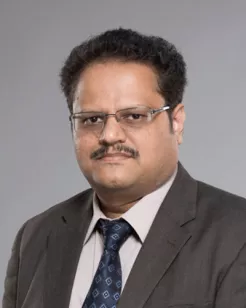FAQ's
What does a neurologist do?
Medical professionals that specialize in the diagnosis and treatment of nervous system illnesses are known as neurologists. This covers all of the body's nerves as well as the brain and spinal cord. They frequently handle ailments like Parkinson's disease, multiple sclerosis, and epilepsy. Get in touch with us if you require a Bangalore neurologist's advice.
What are the most common types of conditions that neurologists treat?
Epilepsy, migraines, strokes, Parkinson's and Alzheimer's diseases, multiple sclerosis, neuropathy, and brain or spinal cord tumors are among the disorders that neurologists frequently treat. They also treat many types of chronic pain, neuromuscular illnesses, and mobility problems.
When should I consider seeing a neurologist?
If you suffer from severe or ongoing headaches, vertigo, tingling or numbness, memory loss, trouble coordinating your movements, weakening in your muscles, or strange behavioral or personality changes, you might think about seeing a neurologist. Additionally, if you continue to have problems with speech or mobility, consult a neurologist.
What question should you ask a neurologist?
Asking a neurologist about your particular neurological illness, available treatments, possible pharmaceutical side effects, long-term prognosis, and any lifestyle changes that can help manage the condition effectively are all important questions to ask.
How do neurologists decide if surgery is necessary?
Neurologists assess the degree and course of a patient's illness as well as how well non-surgical treatments are working. When deciding if surgery is required for the best course of therapy, they take into account various criteria, including the patient's general health, potential dangers, and the location and nature of the neurological disease.
What is the role of a neurologist in a patient's treatment journey?
Neurologists are essential in the diagnosis and treatment of nervous system illnesses. To provide complete care for the patient's neurological condition, they offer professional advice, create treatment plans, keep track of a patient's progress, and, when needed, work in conjunction with other medical specialists.
How does a neurologist decide on a treatment plan?
To decide on the appropriate course of action, neurologists carefully consider a patient's symptoms, medical history, and the findings of any diagnostic tests. In accordance with the particular neurological disease and the requirements of each patient, they might recommend medication, physical therapy, or other measures.
How should I prepare for my first visit to a neurologist?
It is helpful to have your medical history, current prescription list, and any pertinent diagnostic test findings organized for your initial visit with a neurologist. Prepare a list of your symptoms, ask questions on your health, and bring a support person who you can trust, such as a family member or friend.
What documents to carry on my first visit to a neurologist?
For your first visit to a neurologist, being well-prepared is key to ensuring a productive session. Here's a list of important documents and information to bring with you:
Referral Letter: If your primary care doctor or another specialist referred you to the neurologist, make sure to bring the referral letter or any communication from them. This letter usually contains important information about your medical concern and why you’re being referred.
Medical Records and Previous Tests: Include any relevant medical history, previous tests, or imaging studies related to your neurological concerns. This can include MRIs, CT scans, EEGs, or blood test results. If you don’t have the physical copies, ensure the neurologist’s office has access to these records before your appointment.
List of Current Medications: Provide a detailed list of all medications you are currently taking, including over-the-counter drugs, herbal supplements, and prescriptions, along with their dosages. This is crucial as it helps the neurologist understand what treatments you are already on and avoid potential drug interactions.
Symptom Diary: If applicable, keep a diary of your symptoms, noting what symptoms you experience, their frequency, triggers, and duration. This can provide valuable insights into your condition for the neurologist.
Insurance Information: Bring your insurance card or any other health benefit cards. It’s also a good idea to know what your insurance covers regarding neurology visits, treatments, and procedures.
Identification: A government-issued photo ID (such as a driver’s license or passport) is usually required for registration at the doctor’s office.
Questions or Concerns: Write down any questions or concerns you have to ensure you don’t forget to discuss them during your visit. These can include questions about your symptoms, treatment options, and the impact on your daily life.
Family Medical History: Information about your family’s medical history, especially any neurological diseases, can be important for your diagnosis and treatment plan.
What advancements or technologies are utilized by neurologists?
Neurologists diagnose and comprehend neurological problems by using a variety of technological innovations and breakthroughs, including functional MRI, PET scans, and EEG. They may also employ telemedicine to conduct remote patient consultations, and they are gradually integrating genetic testing and precision medicine into their practice.
One Aster
Personalized Medical Assistant for all your healthcare needs.
Book instant appointment, pay securely, eConsult with our doctors and save all your health records at one place are some of the benefits of OneAster App. It is everything you need, to manage your family Health.
* Registration available only for valid Indian mobile number







